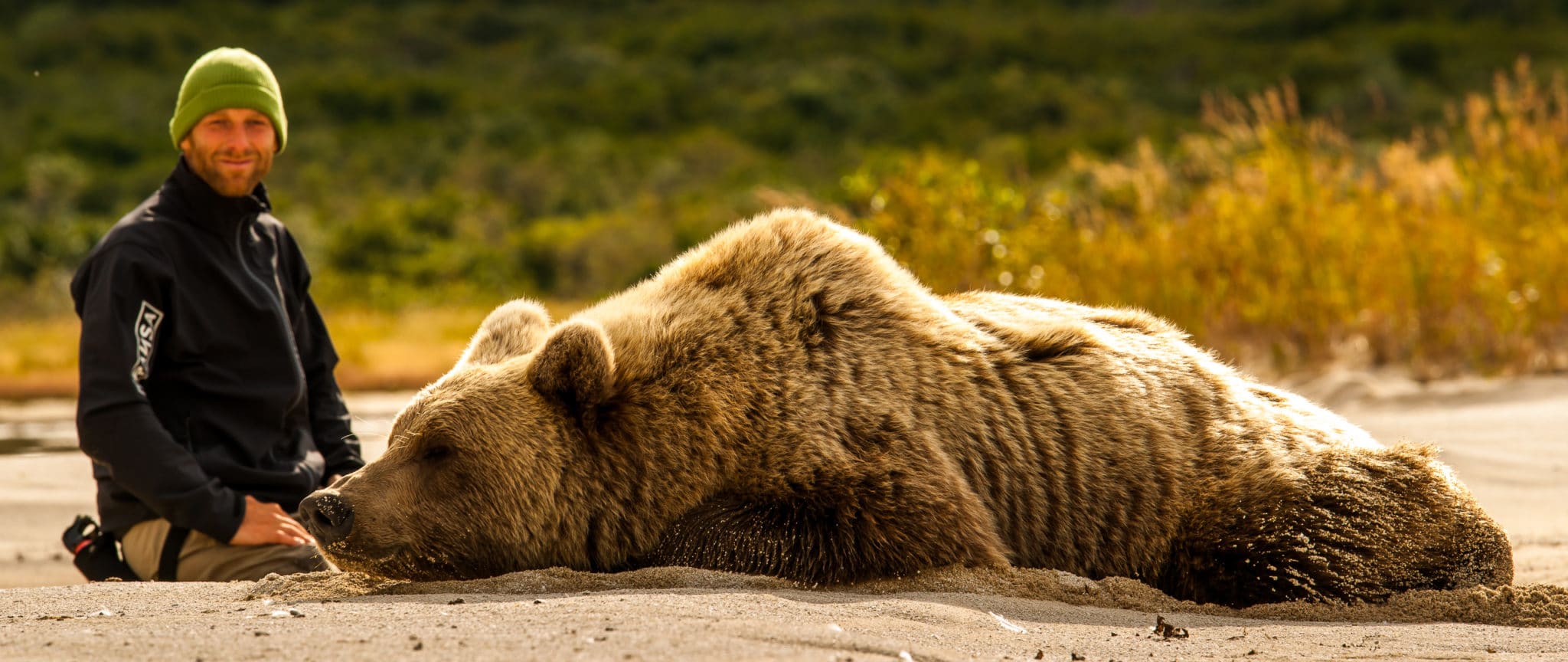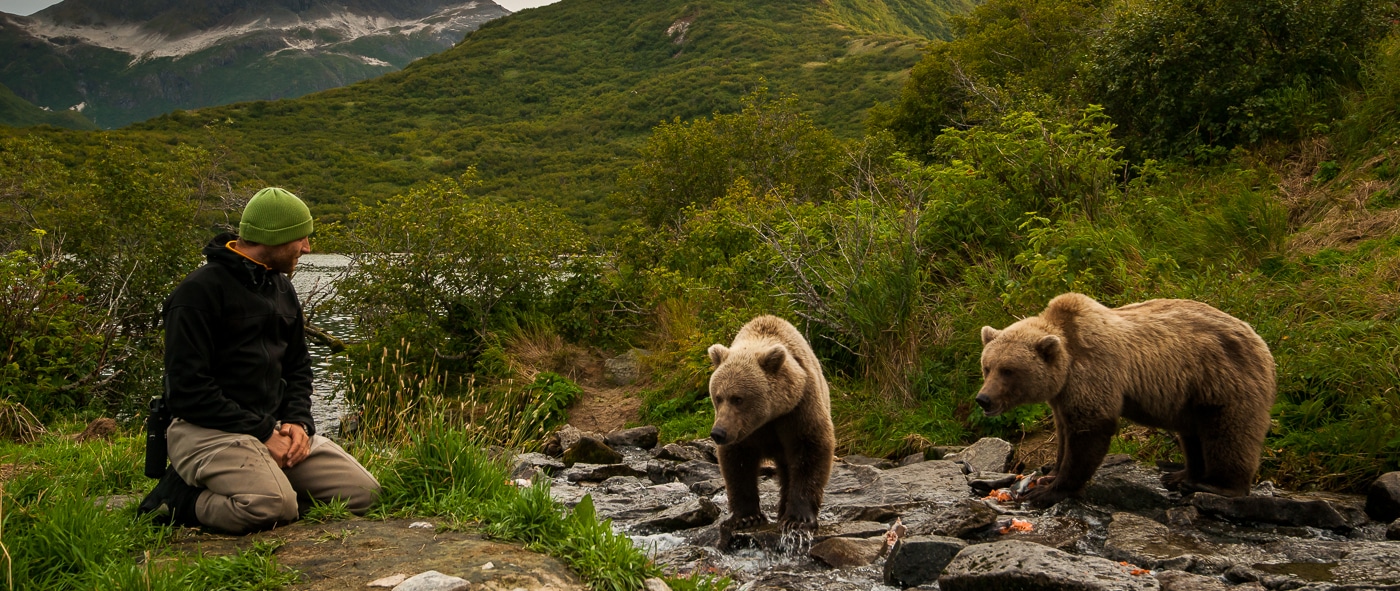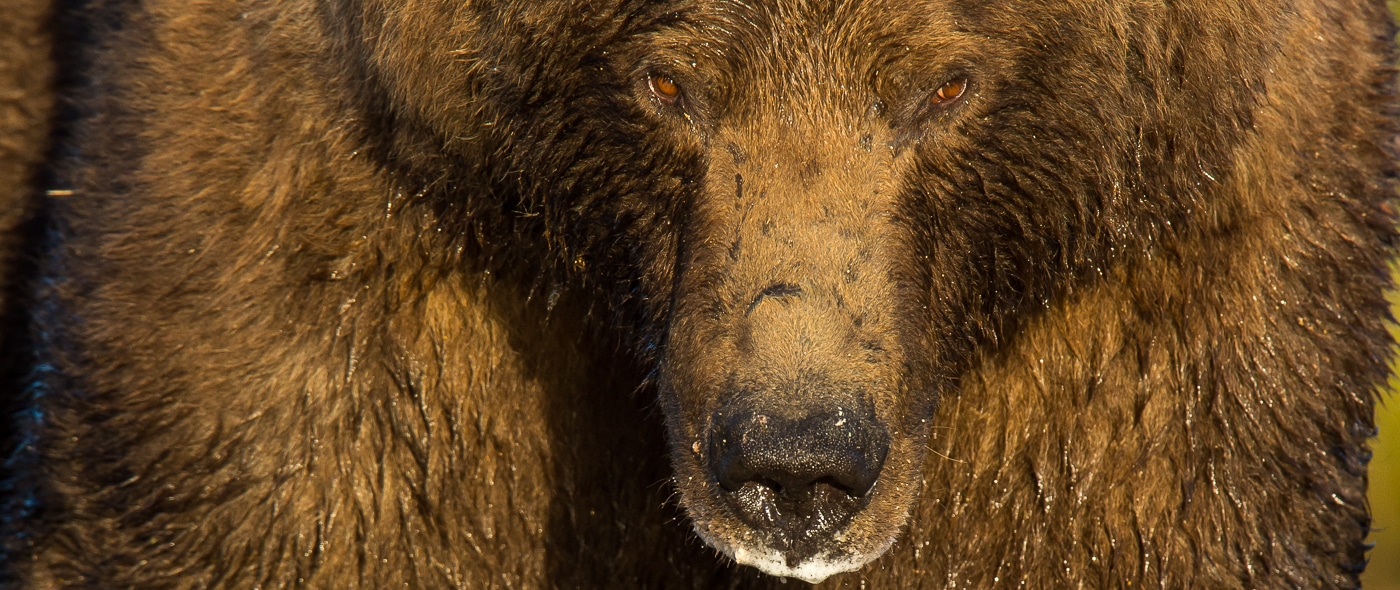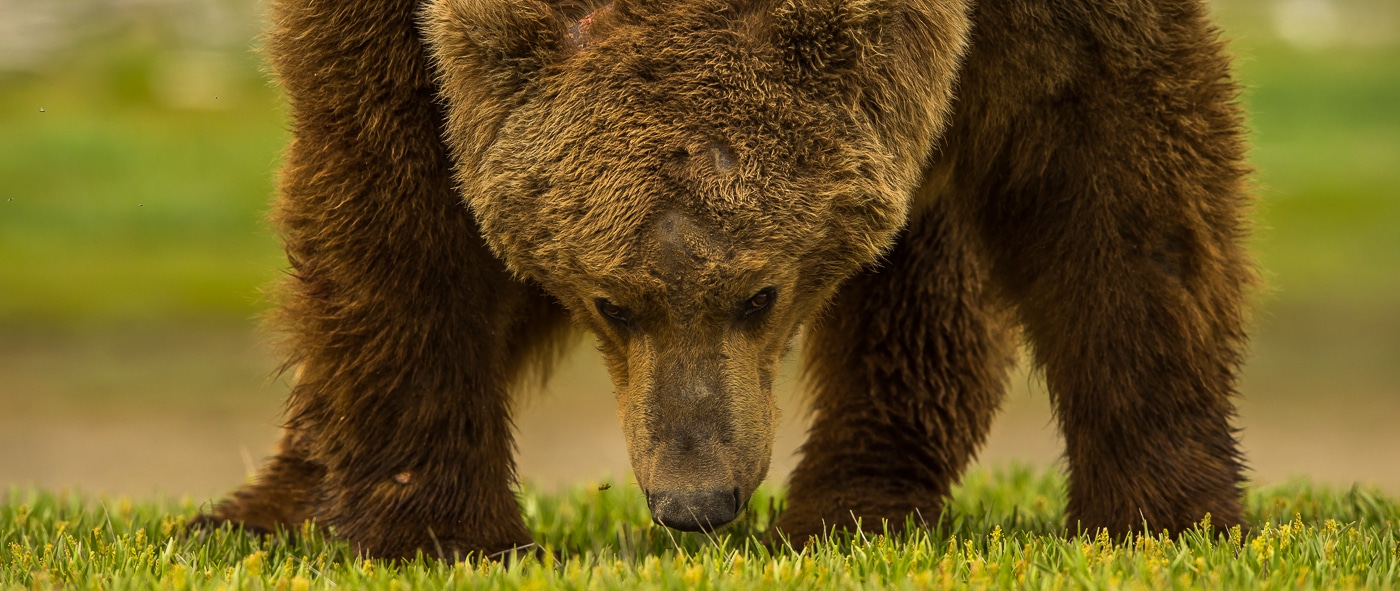Die Bären und ich

The summer of 2002 will stay with me forever. I was simply overwhelmed by what I saw that year. To enter a world that not many have seen before. Above all, to experience things with bears that very few people, if any, have ever been able to experience. It is an indescribable feeling for me to be able to be so close to the bears.
To get the feeling of being accepted by them and even more: to gain their trust. When they meet me for the first time, wild bears behave in a similar way to a conspecific they don’t know. They notice its scent, observe its movements and listen to the sounds it makes.
Patience leads to trust
They are extremely cautious and usually keep their distance. So when I see a bear for the first time in a new place, it behaves just like me: extremely suspicious, cautious and reserved. But sometimes it comes straight up to me. Who knows, maybe it has had bad experiences with humans. It takes a lot of patience to get the bears used to my presence. While some always keep a certain distance from me, others get a little closer with every encounter until they finally no longer feel disturbed by my presence and go about their daily lives, sometimes just a few meters away from me.
An incredible feeling to be close to the bears
They eat and sleep by my side. They no longer feel threatened by me. Now the time has come to spend hours or even whole days in the vicinity of a single bear and the moments follow when I always carry the photo and video camera by my side. Now the days go by in a flash. It is simply incredible for me.

Rosie takes a nap just a few meters in front of me. Balu catches a salmon and practically eats it at my feet. Then, unusually, he catches a flounder less than 2 meters in front of me and I capture the underwater scene on film. Another bear sniffs at the video camera, a meter away from me. Lili is suckling her cubs in close proximity.
Photography and filming at close range
Another mother bear is playing with her cubs next to my tent. One of the cubs is particularly curious and comes into the camp. The electric fence is switched off and the cub even sniffs the tent before calling its mother back. The experiences seem endless and I get the feeling of being part of the whole. When I am in the same place for weeks at a time, I often encounter the same familiar individuals. In the beginning, I needed very clear, unmistakable signs to recognize a particular bear. Bears can look very different. There are smaller and larger ones, light and dark, black and brown, those with longer or shorter fur, pointy-snouted and broad-faced. In the meantime, it’s not so much outward appearances that determine my identification characteristics, but rather certain behaviors. Especially when fishing, the bears display a wide variety of moods. There are wild daredevils, cautious and clever ones, but also fearful or unsuccessful ones who are constantly struggling. At the end of the day, every bear is an individual, just like us humans. Today, I can even tell siblings apart with a fair degree of certainty.

Recognition
Just as I recognize individual bears, I am convinced that they also recognize me. Recognition is primarily based on smell, the bears’ most important sensory organ. But I also think that the bears recognize me through my appearance and my voice. If a bear comes very close to me, I talk to it. I adjust my voice depending on how the bear behaves. If he trots past me comfortably, eats a fish next to me or even takes a nap, I say in a sweet voice: “Hey bear, everything is fine,…” However, if I am challenged by a young male, I speak in a deeper voice and rather sternly: “Hey bear! Hey!!!” This is how the bear recognizes what mood and condition I am in. Despite being careful, situations still arise that make me shudder, especially afterwards: For example, when I surprised a mother with her three cubs. Or when a large male suddenly stood less than 3 meters behind me, simply wouldn’t leave me alone and I finally had to throw stones at him to get him to finally let go of me. Also when I was photographing a small bear at close range, hidden behind a bush, and a second one suddenly appeared in the camera’s viewfinder – “oh dear, they’re siblings, where’s the mother?” – and when I lifted my head from the camera, the mother bear was standing less than 10 meters away from me and was naturally surprised by my presence.
Dicey situations
In many of these situations, something could have happened and it was almost always my misbehavior that put me in such a situation. Fortunately, many bears immediately take flight, which clearly proves that these animals are shy by nature. The vast majority of attacks on humans are in defense because a bear is surprised or harassed. As always when dealing with wild animals, there are rules to follow. I myself observe the following basic rules in bear country: Always make yourself noticeable so that no bear can be surprised. Never walk directly towards a bear, give it distance and let it come towards you. Never feed a bear, because a fed bear is a dead bear and unfortunately this saying has proven to be true time and time again. Never run away from a bear, this stimulates its hunting instinct. Bears can also run at speeds of over 50km/h. It is better to throw yourself on the ground in an extreme situation and put your hands behind your head to protect your head.

Young bears that have just been abandoned by their mother cause the most problems with humans. They like to launch mock attacks. Every time such a bear (usually a male) came running towards me, it stopped at once, only to turn around just as quickly and storm off in the opposite direction. Your heart rate increases dramatically and adrenaline shoots through your body in such situations. It’s just their instinct to challenge other bears and take their place in the hierarchy. Nowadays, I can very quickly recognize the mood and intention of a bear when it confronts me. If it is Bala, Bruno, Rosie or one of the other bears I know, there is mutual trust. The situation is calm and relaxed. I can sense that I am not a threat to the bear and that it is not a threat to me either.
Respect
I think that respect is exactly the right term for our ‘relationship’. Yes, it is indeed a kind of relationship that builds up between individual bears and me. But we respect each other. I certainly have a subjective opinion about the potential danger of these powerful animals due to my intensive coexistence with the bears. But there is always a residual risk. However, I wouldn’t want to miss any of these experiences with the bears, not even the mock attacks.
Dream of own bear research project
These animals mean a lot to me and I can’t imagine my life without them. I want to use my knowledge as a biologist to learn more about these fascinating animals. For me, the biggest dream would come true if I could ever find the funds to realize my own bear project out there in the wilderness.

